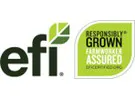It has been five years since the formal launch of Equitable Food Initiative, the workforce development and training organization that partners with growers, farmworkers, retailers and consumer advocacy groups to improve both compliance and business performance.
EFI was first conceived in 2008, was incubated within Oxfam America during a development phase and incorporated as an independent nonprofit in 2015. It has since trained leadership teams on nearly 60 farming operations in North and Central America, improving working conditions for more than 36,000 farmworkers. Participating retailers have so far paid more than $8.5 million in worker bonuses through premiums generated on EFI-certified products.
As the world weathers a global health pandemic and essential workers emerge as true frontline heroes, the role for organizations like EFI becomes more clear. Applying lean management strategies in the fresh produce industry provides farming operations with the tools to solve complex issues, from meeting customer requirements to reorganizing work processes. During the coronavirus outbreak, farms with EFI-trained teams were able to quickly respond to emerging recommendations.
EFI was conceived more than a decade ago as a conversation among fresh produce industry stakeholder groups that looked to create more assurance around food safety and improved conditions for farmworkers. These stakeholder groups launched EFI as a skill-building and certification organization to offer a market-driven solution for pressing labor and food safety issues.
Founding EFI board organizations included Costco Wholesale, Bon Appetit Management Company, Andrew & Williamson Fresh Produce, NatureSweet Tomatoes, Center for Science in the Public Interest, Consumer Federation of America, Oxfam America, Pesticide Action Network North America, Farmworker Justice, FLOC, PCUN and United Farm Workers.
As it evolved, EFI became more than a certification program. It now offers comprehensive workforce development programs and introduces problem-solving skills, labor-management communication channels and a continuous improvement orientation to help meet evolving business demands. Engaging workers in maintaining the highest standards, EFI’s emphasis on both compliance and business performance is unlike typical certification programs. EFI is the only certification that covers three key areas – labor practices, food safety and pest management – in a one-stop shop single audit, helping growers reduce the cost and time of multiple audits. A growing number of retailers now accept EFI’s certificate in lieu of their proprietary social responsibility audits.
EFI is already operating in four countries – United States, Mexico, Canada and Guatemala – and expanding into Central and South America as interest from growers increases. As EFI continues to hear from retailers about the importance of addressing new and existing challenges, it will continue developing tools and resources for the fresh produce industry to meet the needs of a changing food supply chain.
“As we celebrate our fifth anniversary, it’s important to reflect on what has made us successful and what will drive us into the future,” said Peter O’Driscoll, executive director for EFI. “The magic of EFI is that we bring voices from across the supply chain together to find solutions that create value for all stakeholders. We don’t have all the answers ourselves, but we know how to bring together the right people to find them. That collaborative process builds a whole solution greater than the sum of its parts.”
For more information:
Equitable Food Initiative
1875 Connecticut Ave NW, 10th Floor
Washington, DC 20009
www.equitablefood.org
